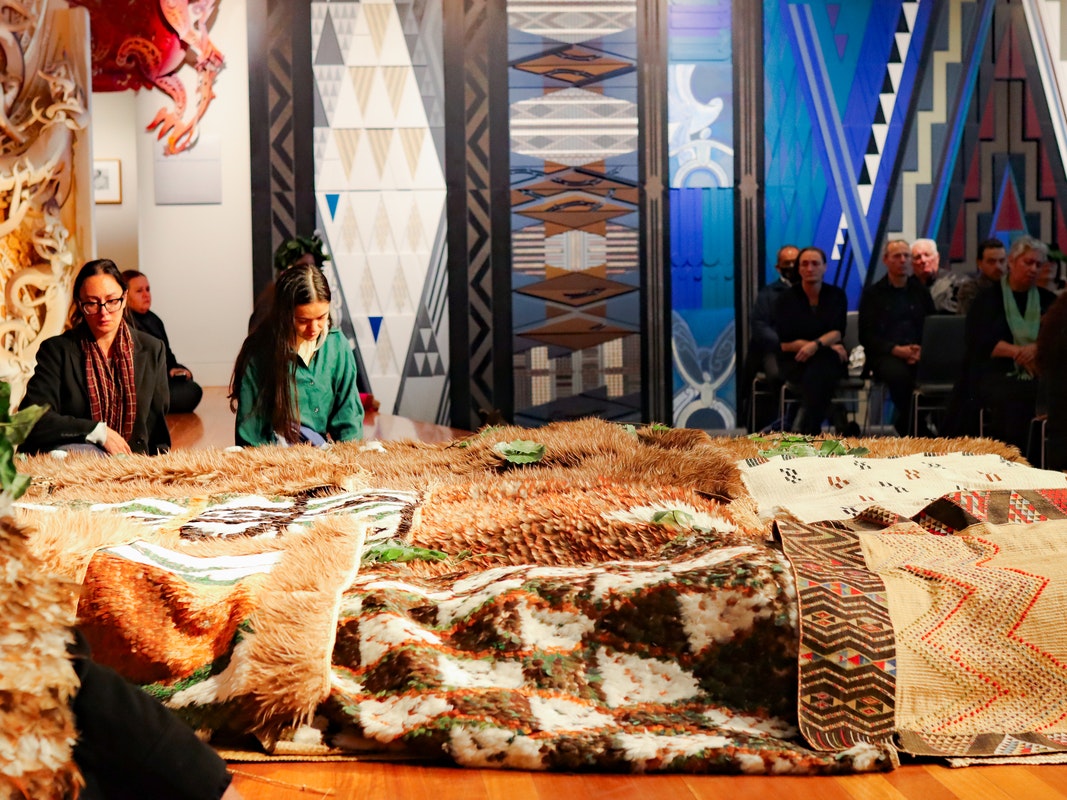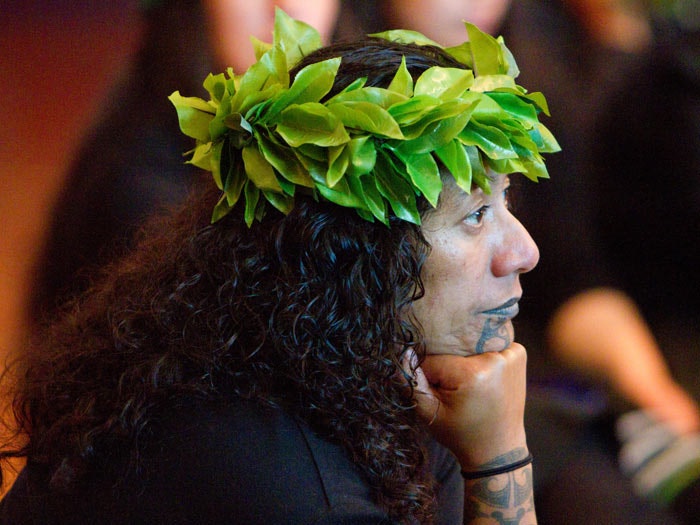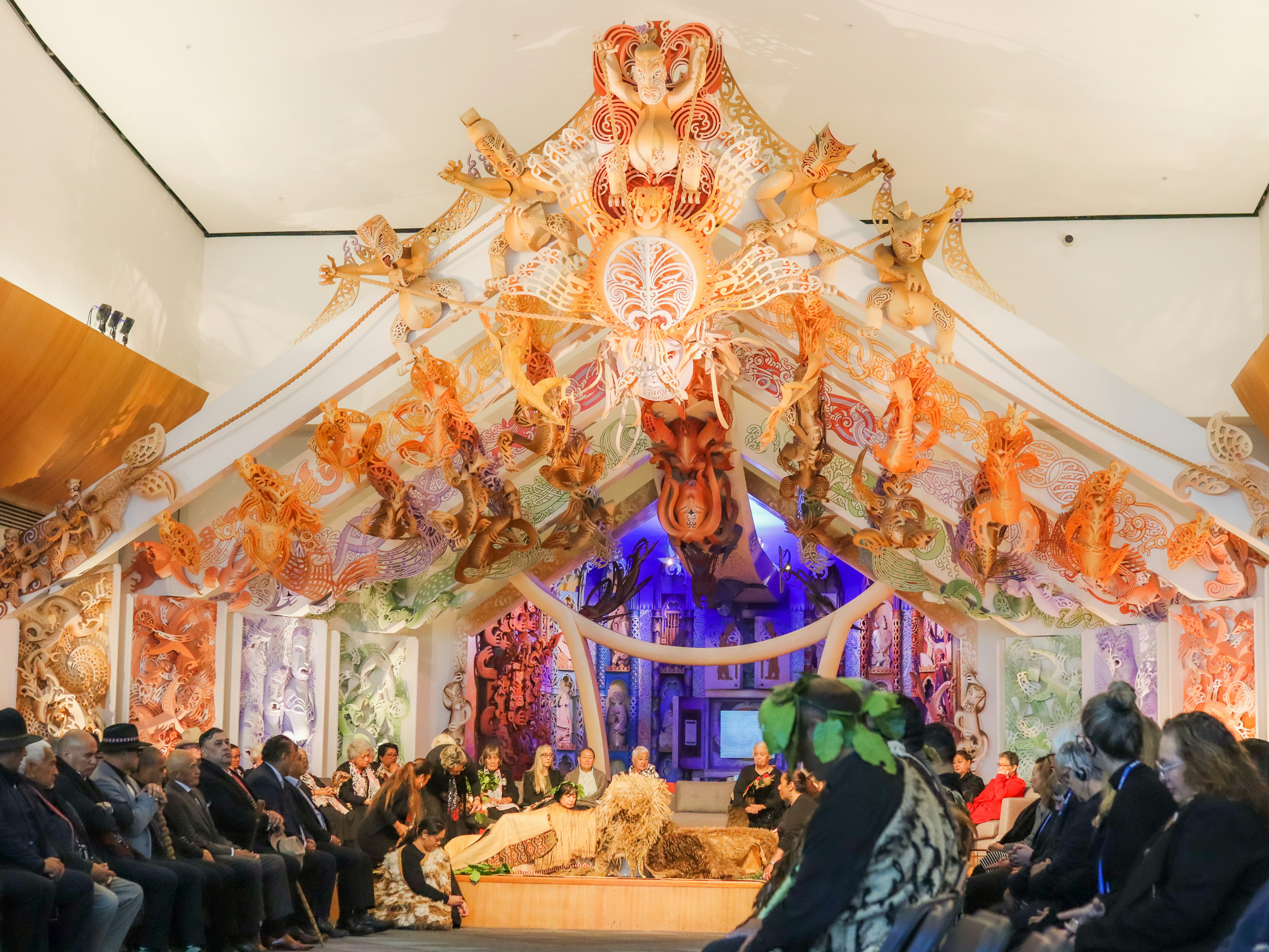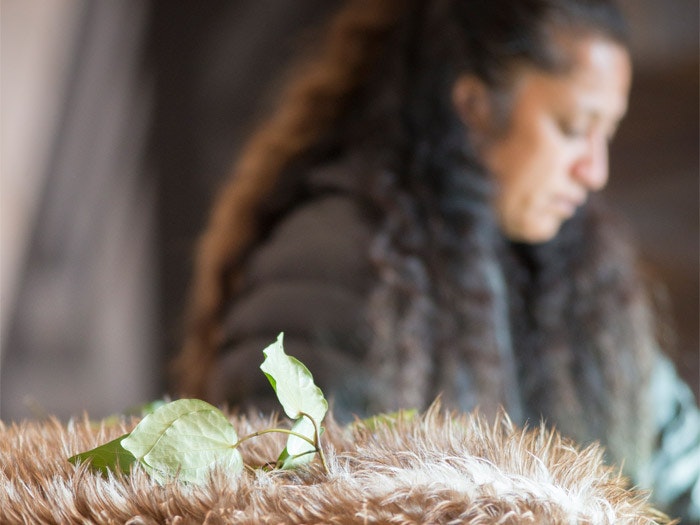
Repatriation of Māori and Moriori remains
Find out what happens to the Toi moko (preserved Māori tattooed heads), kōiwi tangata (Māori skeletal remains), and kōimi tangata/kōimi tchakat before, during, and after their time at Te Papa.
Free museum entry for New Zealanders and people living in New Zealand
Open every day 10am-6pm
(except Christmas Day)
Free museum entry for New Zealanders and people living in New Zealand
Karanga Aoteaora is guided by its Kōiwi Tangata Policy when it returns kōiwi tangata, kōimi tangata/kōimi tchakat and Toi moko to their whānau, hapū, iwi/imi or rohe/takiwā.
Importantly, we engage in conversations with the respective iwi authority. Where there are multiple iwi involved, we seek clarity from all representative groups. Also important to note, previous findings and recommendations by the Waitangi Tribunal may be of guidance in seeking clarity.
A copy of the programme’s present Kōiwi Tangata Policy is attached to this webpage for your information.
Karanga Aotearoa provides a provenance report of kōiwi tangata associated with the particular rohe/takiwā.
This is provided to be reviewed by the whānau, hapū and iwi of the rohe/takiwā.
As part of the review process, the whānau, hapū, and iwi may have wānanga to confirm the whakapapa that these kōiwi tangata have to their specific rohe/takiwā.
The next step is to confirm the discussions of the wānanga with Karanga Aotearoa.
If the whānau, hapū, and iwi wish to seek the direct return of these kōiwi tangata, Karanga Aotearoa will ask that they send a formal request from their iwi authority.
At this stage, Karanga Aotearoa will seek advice and guidance from the Repatriation Advisory Panel as to outstanding matters that may need to be considered.
Further conversations are then had with whānau, hapū, and iwi representatives.
Where domestic return conversations are completed, an agreement can be reached to return kōiwi tangata to their whānau, hapū, and iwi.
At this stage, the whānau, hapū, and iwi/imi may wish to have further wānanga to discuss appropriate tikanga/tikane (cultural practices) regarding uplift of kōiwi tangata/kōimi tchakat, process of return from Te Papa to their wā kainga/hau kāinga/papa kāinga (place of origin), ceremonial procedures on return and final resting place/places. Please note that tikane is the Moriori word for traditional and customary practices.
After the final wānanga are completed, the parties involved may wish to reach a mutually agreeable date for the uplift of the kōiwi tangata from Te Papa with appropriate kawa and tikanga, or the iwi may wish Te Papa to return the kōiwi tangata to one of their nominated marae.
In both situations, appropriate tikanga is followed, and the transfer of care of the kōiwi tangata is signed through a formal transfer document as part of this process.
Karanga Aotearoa has the mandated role from the New Zealand Government, with the support of Māori and Moriori, to seek formal agreements with international institutions for the return of Māori and Moriori ancestral remains from overseas institutions.
Importantly, Karanga Aotearoa can only repatriate ancestral remains where their whakapapa or provenance is confirmed as Māori from Aotearoa New Zealand or Moriori from Rēkohu Chatham Islands.
In some situations, the provenance of the returning kōiwi tangata/kōimi tchakat indicates which region and iwi/imi they are associated with.
Where provenance is strong, the iwi/imi is contacted before the kōiwi tangata/kōimi tchakat return from overseas, and they are invited to the pōwhiri of the ancestors on Rongomaraeroa, Te Papa’s national marae.
Further conversations, provenance research, and wānanga are progressed through with the iwi/imi to ensure the safe return of their kōiwi tangata from Te Papa to their whānau, hapū, iwi, and rohe/takiwā, which also includes the provision of funding at key points.
It is important to note that most kōiwi tangata and kōimi tchakat have been away from their wākāinga/hau kāinga/papa kāinga (homelands) for over 100 years. Since that time, their whānau, hapū, iwi, and takiwā/rohe have changed due to the colonisation process, which in many situations has affected the community’s knowledge of whakapapa, tikanga, iwi relationships and connections with their tribal territories. In many situations, the colonial process of alienating Māori land has reduced the lands in the ownership of whānau, hapū, and iwi from nearly 100% in 1840 to approximately 5% in 2025.
The programme provides funding in a number of areas to ensure the kōiwi tangata and kōimi tchakat are returned safely to their whānau, hapu, iwi/imi, and or takiwā.
As indicated above, the colonisation process since 1840 to the present day in Aotearoa New Zealand has changed the landscape and connection Māori and Moriori have to their respective karāpuna/tūpuna (ancestors) and associated whenua. In many situations, there has been a loss of tikanga/tikane, mātauranga/tohungatanga (indigenous knowledge), te reo Māori/tā rē Moriori (language), karakia/karakī (prayer) and wāhi tapu/wāhi tchap (sacred sites).
The funding we provide recognises the historical loss of connection with ancestral remains, traditional customary practices, identity, funerary ceremonies, and important final resting places.
The aim of the funding provided is to reconnect whānau, hapū, and iwi/imi in meaningful ways with those kōiwi tangata/kōimi tchakat that were looted and collected from their wāhi tapu/wāhi tchap and traded throughout Aotearoa New Zealand as well as to overseas institutions.
Since the programme was established in 2003, it has provided funding in the following areas including: provenance/whakapapa wānanga, tikanga wānanga, wāhi tapu wānanga. Other funding has included support for delegations to attend pōwhiri at Te Papa for returning tūpuna and karāpuna from overseas, as well as the uplift of tūpuna at a time when an iwi is ready to uplift and receive them on their whenua.
Sometimes an iwi seeks additional information about the ancestral remains connected to their takiwā/rohe, such as their gender, age, health at time of death, the cause of death, and how many individual ancestors are part of the skeletal remains repatriated.
Sadly, the context of the theft of ancestral remains in some situations meant that those taking human remains from wāhi tapu, had little concern for whether they belonged to one person or to many people. For example, without hesitation, some skeletal remains were given skulls that belong to one person and matched with jawbones or other skeletal bones that belonged to another person. The task of the bioarchaeological assessment helps to determine whether the skeletal remains belong to the same ancestor or to several ancestors.
In this situation, Karanga Aotearoa seeks an experienced and well-respected practitioner of non-invasive bioarchaeological assessments to provide this report, and the findings are added to the final Kōiwi Tangata Report provided to the iwi.
At this stage, Karanga Aotearoa does not undertake DNA or isotope testing on Māori or Moriori ancestral, as this decision is best decided by the respective iwi/imi that has a whakapapa/hokopapa connection to the kōiwi tangata/kōimitchakat.
Funding has been provided to the following whānau, hapū, iwi, and institutions to support initiatives, wānanga, and pieces of work that create pathways of return for kōiwi tangata/kōimitangata from Te Papa to their whānau, hapū, iwi/imi and takiwā/rohe.
|
Year |
Iwi/imi, kāhui kaumātua, rūnanga, institution |
Funding Provision |
|
2025 |
Te Waiariki, Ngāti Kororā, Ngāti Takapari |
Return of kōiwi tangata to their takiwā and rohe. |
|
2024 |
Te Uri o Hau (Kaipara) |
Return of kōiwi tangata to their takiwā and rohe. |
|
2024 |
Forensic Expert Advice re: health, age, gender and cause of death of kōiwi tangata. |
Specialist forensic research for kōiwi tangata research with provenance to Kaipara. |
|
2024 |
Te Waiariki, Ngāti Kororā, Ngāti Takapari |
Pōwhiri at Te Papa for repatriated kōiwi tangata/kōimi tchakat. |
|
2024 |
Hokotehi Moriori Trust |
Pōwhiri at Te Papa for repatriated kōiwi tangata/kōimi tchakat. |
|
2024 |
Te Whānau o Taupua Te Whanoa |
Return of plaster cast of rangatira to their whānau and hapū of Ngāti Whakaue. |
|
2023 |
Ngāti Koata (Te Tau Ihu o Te Waka) |
Pōwhiri at Te Papa for repatriated kōiwi tangata/kōimi tchakat. |
|
2023 |
Ngā hapū o Whangaroa |
Pōwhiri at Te Papa for repatriated kōiwi tangata and kōimi tchakat. |
|
2023 |
Hokotehi Moriori Trust. |
Pōwhiri at Te Papa for repatriated kōiwi tangata and kōimi tchakat. |
|
2023 |
Ngā hapū o Whanganui |
Pōwhiri at Te Papa for repatriated kōiwi tangata and kōimi tchakat. |
|
2023 |
Te Uri o Hau (Kaipara) |
Pōwhiri at Te Papa for repatriated kōiwi tangata and kōimi tchakat. |
|
2023 |
Te Waiariki, Ngāti Kororā, Ngāti Takapari |
Pōwhiri at Te Papa for repatriated kōiwi tangata and kōimi tchakat. |
|
2022 |
Ngātiwai on behalf of hapū and iwi of Whangārei. |
Pōwhiri at Te Papa for repatriated kōiwi tangata and kōimi tchakat. |
|
2022 |
Auckland War Memorial Museum |
Transfer of care of kōimi tchakat from institution to Te Papa. Attending Ta Ara a Nunuku Reconciliation Ceremony at Te Papa. |
|
2022 |
Canterbury Museum |
Transfer of care of kōimi tchakat from Canterbury Museum to Te Papa. Attending Ta Ara a Nunuku Reconciliation Ceremony at Te Papa. |
|
2022 |
Tuhura Otago Museum |
Transfer of care of kōimi tchakat from institution to Te Papa. Attending Ta Ara a Nunuku Reconciliation Ceremony at Te Papa. |
|
2022 |
Otago University |
Transfer of care of kōimi tchakat from Otago University to Te Papa. Attending Ta Ara a Nunuku Reconciliation Ceremony at Te Papa. |
|
2022 |
Whanganui Regional Museum/ Ngā hapū o Whanganui |
Pōwhiri at Te Papa for repatriated tūpuna from Whanganui. Transfer of care of kōimi tchakat from Whanganui Regional Museum to Te Papa. Attending Ta Ara a Nunuku Reconciliation Ceremony at Te Papa. |
|
2022 |
Hokotehi Moriori Trust |
Attending pōwhiri and Ta Ara a Nunuku Reconciliation Ceremony at Te Papa for repatriated karāpuna from the Natural History Museum in London. |
|
2021 |
Ngā Hapū o Whangaroa |
Whakapapa and provenance research wānanga. |
|
2020 |
Ngā hapū o Kāwhia |
Whakapapa and provenance research wānanga. |
|
2012 |
Ngā hapū o Oparau, Kāwhia. |
Return of kōiwi tangata to their takiwā and rohe. |
Contact: Shaadiya-Lee Filoa (Repatriation Coordinator)
Īmera | Email: shaadiya-lee.filoa@tepapa.govt.nz
Wāea | Phone: 0220103817

Find out what happens to the Toi moko (preserved Māori tattooed heads), kōiwi tangata (Māori skeletal remains), and kōimi tangata/kōimi tchakat before, during, and after their time at Te Papa.

Returning Māori and Moriori ancestral remains to iwi (tribes) Māori and imi Moriori across Aotearoa New Zealand and Rēkohu Chatham Islands.

Learn about the people behind the Karanga Aotearoa repatriation programme.

Te Papa has returned close to 850 Māori and Moriori ancestors to Aotearoa New Zealand by repatriating ancestral remains, including Toi moko, from around the world.